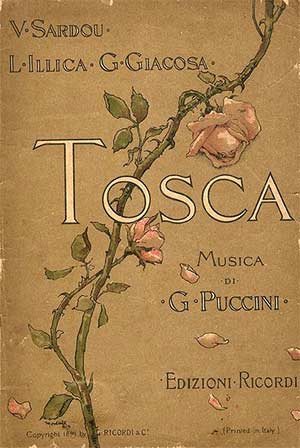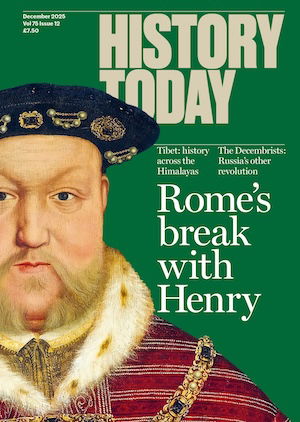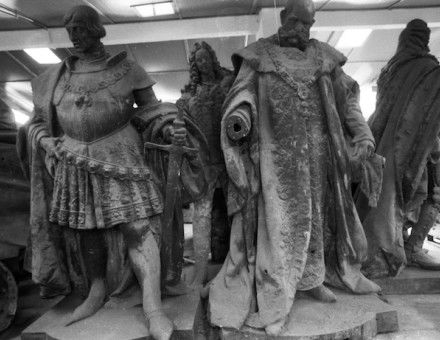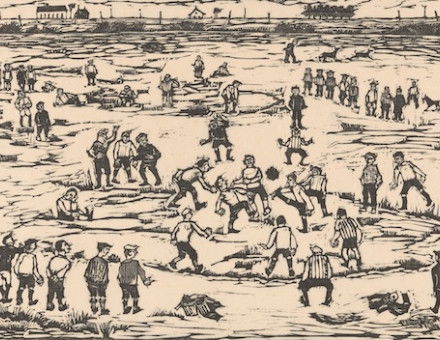First Performance of Puccini's Tosca
The great opera premiered in Rome on January 14th, 1900.

As early as May 1889 Puccini told his publisher, Giulio Ricordi, that he wanted to make an opera out of a melodrama which the highly regarded French playwright Victorien Sardou had written as a sensational acting vehicle for Sarah Bernhardt. Her gift for mime, incidentally, accounts for the long wordless scene in the opera’s second act, after the villainous police chief has been murdered. Set in Rome in 1800 during the struggle between the repressive royalist regime and the republican revolutionaries, the play was called La Tosca.
Ricordi had a libretto written, but as Puccini was busy with Manon Lescaut, the publisher gave it to another of his stable of composers, a lesser light called Alberto Franchetti. Puccini was seriously displeased and Ricordi hastened to retrieve the work from Franchetti by telling him that on second thoughts he had decided it was entirely unsuitable for an opera – brutally violent and involving a murderous heroine and a forgotten political situation that no contemporary audience would grasp. Franchetti was persuaded and relinquished his rights to the work.
In 1895 Puccini went to Florence specially to see Bernhardt in the play. Her performance almost put him off the project altogether, but he made some sort of a start on it in the following summer, after the première of La Boheme. Puccini always dawdled over composing, leaving himself plenty of time for the hunting, womanising and foreign travel which he enjoyed. He met Sardou in Paris several times to discuss the work, but was not impressed by the playwright’s suggestions, which would have involved making the Tiber flow the wrong side of the Castel Sant’ Angelo. Sardou said this did not matter, but Puccini, who was a stickler for accuracy of detail, was sure it did. The opera was finished at last near the end of September 1899, but then there was a problem with Ricordi, who did not think the last act measured up to the dramatic power of the first two. Puccini replied irritably that the librettists had failed to produce adequately poetic words for the final act and he had tried to reach the end of the opera without boring the audience too much, but he would agree to changes if his dear ‘papa Giulio’ really thought them necessary.
No changes were made and the opera was given its first performance, a few days after the composer’s forty-second birthday, produced by Ricordi’s son Tito at the Teatro Costanzi in Rome. There were fierce political tensions in Italy at the time and rumours spread that a bomb might be thrown at the première. Queen Margherita of Italy was present in a glittering if understandably nervous audience – poor Franchetti was there as well -- which demanded encores of Vissi d’arte and E lucevan le stelle and gave the performance a polite if not outstandingly warm reception. The opera was a success at the box office, but the critics generally turned thumbs down on it, finding its sadism and scenes of attempted rape and physical and mental torture repulsive. The same criticism surfaced in England after the opera’s first performance at Covent Garden in July, which was attended by Puccini himself, but the general reaction was highly enthusiastic.
The composer’s English was almost non-existent, but he liked London. ‘Language impossible, women very beautiful, splendid theatres and entertainments in profusion…’ he wrote to an Italian friend. During his stay he was taken to see the London slums, which he found extremely interesting, and a performance of a one-act play by David Belasco called Madame Butterfly. He could scarcely understand a word of it, but there was something about it which appealed to him.




